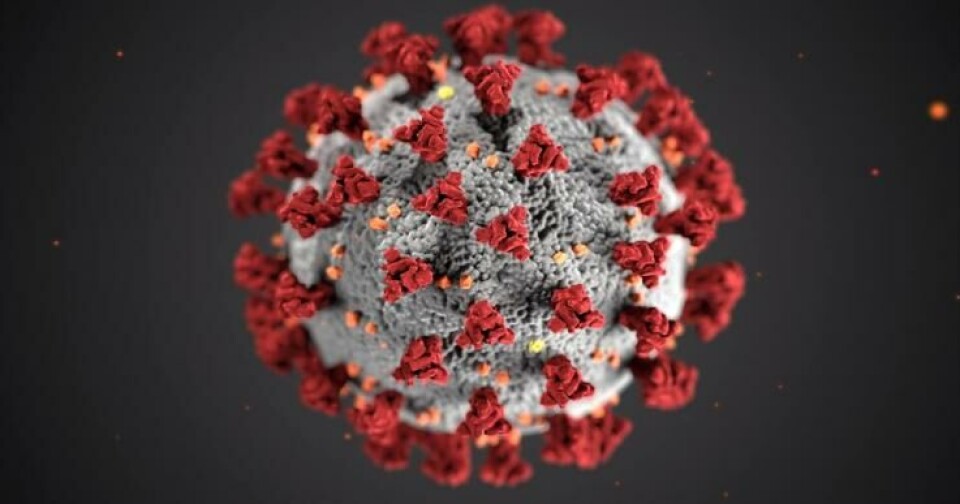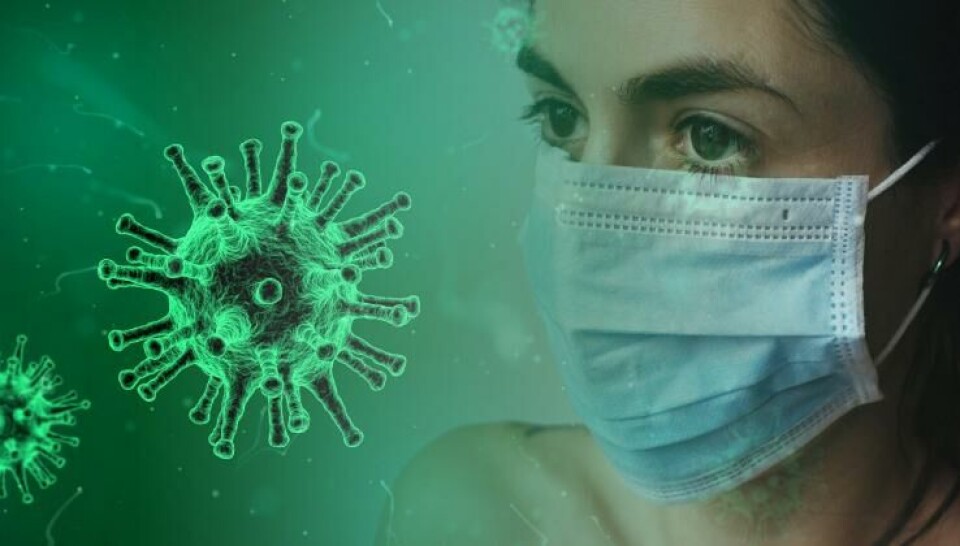article> Science
Coronavirus: What it is, Its consequences & What you can do

Much has been said already about the coronavirus or COVID-19. But... what is it really? What effects will it have on government policy and the economy? What can you do to help?
By David Abidaoud
Contributing Writer
COVID-19. The Coronavirus. It would be difficult to find someone who had not yet heard of the rapid international spread of it. But how severe is it anyway? Should I care about it myself? What about those face masks everyone has been talking about? These questions and many more are what we will try to answer in this article, as there are many pieces of conflicting information about Coronavirus floating about.
At this moment, there are around 122,000 confirmed cases worldwide based on a relatively reputable tool compiled by Jon Hopkins university that can be found here.
By the time you read this article that information will probably be out of date and there will likely be even more cases. The disease has spread relatively quickly to every continent of the globe and has provoked lots of government declarations to the public, along with intense governmental measures in certain areas, namely the Hubei province in Wuhan, China.
As the virus gains global traction and the first cases have been confirmed, even here in Leuven, there are generally two extreme paradigms that dominate international news, which are competing for our attention. The first one being that this virus is going to seriously affect daily life, everyone needs to prepare for it and take appropriate measures. The second and opposite perspective is that the virus is just mildly more serious than influenza, has almost no effect on young people and will likely pass as quickly as it arrives. As is true for most things in life, the actual truth probably lies somewhere between these two extremes. To tell exactly where may be a fool’s errand, but we can attempt to estimate based on some objective criteria. More importantly, it may help you rationalize and understand what is going on.
What is it?
There are a series of things that we do know about the coronavirus that can be referred to when trying to understand what it means for the average person.
- It is a virus that affects the upper respiratory tract, which causes coughing and pneumonia-like symptoms. Mortality rates exceed 1% in populations over 60 years old only.
- It is a very difficult virus to contain that is spreading fairly quickly
- It is a very recently discovered and poorly understood virus
These factors are the real physical characteristics of the disease that factor into national policy making. As we can see the health risk to young people is relatively low. This however, is offset by the relatively high elderly mortality rates. For retirement homes and assisted living centers, this disease is the grim reaper.
It is also a poorly understood virus. This means that the potential risks associated with it are not yet completely known, though we are starting to learn more and more about it. This is all the more reason to contain it.

One of the most important contributing factors for why there has been so many intense international measures taken in places like China or Italy, is because we face something that has a similar ability to spread as Influenza. Influenza is one of the greater contributing factors for the reason we have the flu season every year. If Coronavirus takes root as a global pandemic (which some argue it essentially already has), then its fast spread rate may cause it to become a part of the yearly flu cycle. This would mean that we would have a worse flu season every year as a result of another virus joining the fray. This places a larger burden on our hospitals and medical care systems alongside making the world a less hospitable place for our elders.
How does it affect government policy?
When governments coordinate their coronavirus response there are a few political considerations that come into play.
- Governments aim to disrupt people's lives as little as possible
- Governments have an obligation to safeguard the population
- Governments have to deal with a worsening health crisis on an international level
When we hear about Coronavirus, we are told about the drastic measures being taken by governments, such as the disinfection of public spaces or the distribution of test kits and other equipment to medical professionals in affected areas. The virus is often described, particularly in the earlier stages of its spread, to be contained to a given geographical region. This is still happening quite often with national governments announcing its presence in certain areas of the country. The truth is, with the speed of transmission and the lack of symptoms in some cases, it is very difficult to say where exactly the virus is present.
While the Coronavirus bears many risks, it is in fact a relatively more mild disease for most people.
A fair number of documents publicly available on the website of the World Health Organization detail some communication recommendations for officials when communicating with any audience. It is to ensure that people will respond in an appropriate non-destructive way to news about the virus. It may seem suspicious and controlling to tailor messages and leave out information about the virus especially when coming from the government, but it is important that people in a certain region do not suddenly panic and for instance, start stockpiling by buying all the food in the supermarkets. That would seriously affect life in the region as the perceived lack of food would cause an intense panic feedback loop, quickly deteriorating regional situations and the ability of the government to manage the crisis.

With regards to disease control in general, recent decades have seen a statistically significant growth in epidemics and deadly diseases. This is in part due to the huge increase in both human and livestock populations. Therefore, diseases have a greater number of opportunities to find hosts and spread. We have seen terrible examples of this in the Swine Flu epidemic, SARS and MERS outbreaks, just to name a few. National governments have been investing millions and billions of dollars into their disease control programmes. They hope to improve their capabilities and the current coronavirus outbreak is a test of that investment, a contributing reason to why national governments are mobilizing so much.
It is a great opportunity for us to test our mitigation systems and how we would respond to a much worse outbreak. It will help us understand how medical care systems across the world will deal with a local outbreak and essentially stress test our institutions of care.
A restriction on freedom of movement and joint economic activity promises to slow down production.
How does it affect the economy?
- Our economy is based on having an easy access to trade and the coronavirus is currently killing this
- Some would argue that the economy is at a tipping point and a recession may slowly be taking root
The Coronavirus has seen much of China cut its labour for weeks. People were told to stay home and avoid going outside, working from home if possible. As China is a huge center for manufacturing, this had an immediate impact on manufactured goods, disrupting their supply for a number of weeks. While it is not good for the global economy, it is far from fatal. The continued concern about the disease is starting to have deeper and more serious ramifications though, in the form of travel restrictions and closed borders. This has prevented lots of commerce from occurring and perhaps business people in your circles will attest that they have experienced conference and meeting cancellations due to fears over coronavirus.

Large technology companies like Apple have announced an expected drop in manufactured goods and sales, translating to lower quarterly earnings which will inevitably negatively impact their share prices on stock exchanges. Lower innovation and business growth are to be expected this quarter.
Before the coronavirus had even taken root, there were signs of an economic slowdown throughout the financial world. The federal reserve of the United States cut interest rates multiple times this last few months between 2019 and 2020, and may yet again cut rates. This is done to encourage businesses and consumers to spend and borrow, which is necessary to promote growth and is done as part of a financial strategy called quantitative easing. This is done to make cycles of growth and contraction in the economy smoother and less bumpy for consumers and businesses, preventing sudden huge crises. Corporate Bonds had seen a serious drop in quality and payback rates, which is a potentially huge issue, as failure to repay debts have been catalysts for many historic financial crises.
Even without the Coronavirus, markets were seeing an increase in the valuation of gold and the word recession was floating around more and more frequently. We are in the longest expansionary period so far known to modern economics and it is expected that we should experience a recession soon. With the Coronavirus, it is likely that we will see even more risk aversion to investment, people unwilling to subject their money to chance in an uncertain world. This carries the potential danger of the dropping valuation of certain companies, the diminishing of profits and general fear uncertainty and doubt. This is quite possibly the greatest danger of the current outbreak.
The surgical masks do close to nothing in preventing you from getting sick, but they do help limit the spread of the disease if YOU are sick, as they stop the projection of particles across the room if you sneeze.
What can I do?
You can do a few things to help do your part in mitigating this crisis. Everyone has said it a hundred times, but it is so important: Wash your hands and cover your mouth when you cough or sneeze. Not only is it proper etiquette, but it is the best way to prevent the spread of infectious diseases. Avoid panic stockpiling masks, medicines and food. There is nothing wrong with buying a week or two’s supply of cough and fever medicine, especially in the middle of the flu season, but keep it reasonable.

Those masks that everyone is talking about come in a couple of forms. There are the N95 masks and surgical masks.
N95 masks are more reliable and will in fact prevent infection, but many of them are now unavailable as panic has resulted in a mass buying that has left most stocks empty. But if you are someone who is young, healthy and are not working on the front lines of healthcare, there is really no reason for you to have these. The disease is far more dangerous to people who have to regularly deal with infected patients, or those who are old and have underlying conditions.
So think of your fellow humans and let us respond rationally to this outbreak. It is unlikely to cause anarchy or social collapse and is actually something of a litmus test of our institutions and societies. It is a trial to see how well prepared we are and how we respond to such an outbreak.





